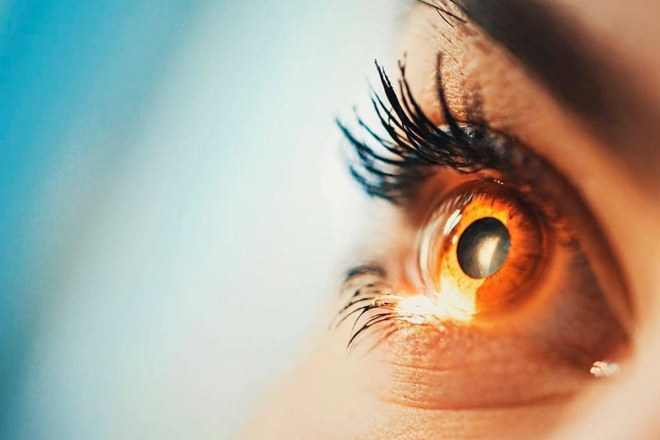Vision problems aren’t only an age-related thing. It can happen at any age and can be a real problem. The health of human eyes (just like anything else) depends on your lifestyle. A healthy diet, physical activity, reduced screen time, and suitable sunglasses are all important when it comes to keeping your eye health in great shape. However, sometimes it’s important to give your body a boost with eye care vitamins. What are the most important eye vitamins and can you just take them without a doctor’s recommendation? Here’s what you need to know.
What Are Eye Vitamins?
Nutrition plays a major part in the health of your eyes (just like for your general health). Eye vitamins are supplements (mainly in the form of pills) that will supply your body with the right nutrients and protect your vision and eye health. Vitamin deficiencies can cause eye problems. If you’re having issues such as macular degeneration, cataracts, glaucoma or other vision conditions, eye vitamins might be of great help. And while vitamins aren’t medications and can’t cure conditions, nutrition will certainly play a big part in your overall eye health. In case you’re missing crucial nutrients your doctor may recommend vitamin supplements to boost your health.
What Vitamins Can Help Your Eyes
Some of the most essential eye care vitamins are already present in healthy foods. Niacin or vitamin B3 is essential to convert food to energy and may prevent glaucoma. Lutein and zeaxanthin are vitamins formed from plant combinations, and research shows they may protect the eyes from several damaging diseases.

Another essential nutrient is omega-3 fatty acids which are found in the cells of the human retina. Riboflavin or vitamin B2 may prevent cataracts while B1 may reduce them. Vitamin A may improve night vision. B6, B9 and B12 are known to reduce inflammation in the body’s tissues. Vitamin C helps in collagen production which is a protein that helps build the cornea of the eye.
Vitamin E protects cells and according to some studies it can prevent age-related cataracts. In case you’re missing any of these vitamins in your diet (vitamin B can be sufficient in a vegan diet) you might want to include supplements to provide your body with the right amounts. Of course, you must always consult a doctor before taking any.
Vitamin A
Vitamin A is known to maintain clear cornea, which is the outer part covering the eye. This vitamin is a component of rhodopsin, a protein in the eyes that allows you to see in darker conditions. Although vitamin A deficiency is rare in developed countries, it may cause serious xerophthalmia which is a progressive eye disease that starts with night blindness. If this deficiency continues, the tear ducts and the eyes can dry out. With time, the corona will soften, resulting in irreversible blindness.
Vitamin B
Several B vitamins are essential for keeping the eye healthy, more particular B6, B9 and B12. This mix of vitamins can reduce levels of homocysteine, a protein in the body that may cause inflammation and can increase the risk of developing age-related macular degeneration.
According to a clinical study, women show a 34% reduced risk of developing AMD while taking 1,000 mcg of vitamin B12, B6 and B9.

Vitamin C
Vitamin C is a powerful antioxidant and may protect your eyes from damage caused by free radicals. It’s a necessary nutrient to make collagen, a protein that provides structure to your eye, especially in the cornea and sclera. Several studies suggest that vitamin C might reduce the lower risk of developing cataracts (which causes your eyes to become cloudy and your vision impaired).
Vitamin E
Oxidative stress can be the reason for many eye conditions. It’s a powerful antioxidant that helps in the protection of your cells, including your eye cells. It may prevent your eyes from damage caused by free radicals, which are harmful and unstable molecules.
Besides a diet rich in vitamin E and suitable supplements may be of great help to prevent age-related cataracts (more studies are needed for this).
Can Eye Vitamins Improve Your Vision?
There is no simple answer to this. Many vitamin companies would claim that their vitamins do this, but, the truth is, vitamins aren’t a cure, just a booster to your diet that should provide you with the right amount you need to keep your overall health in great shape.
Can They Help With Age-related Macular Degeneration and Cataracts?
Age-related macular degeneration and cataracts are serious eye illnesses that are the main cause of vision loss in people after the age of 50. There are two forms of age-related macular degeneration: dry AMD which is a gradual vision destroyer and wet AMD which causes fast vision loss.
Vitamins that help patients suffering from AMD are copper 2mg, lutein 10mg, vitamin C 500mg, vitamin E400 IU, Zeaxanthin 2mg and zinc 80mg.
What’s most important (besides a healthy lifestyle) is to do regular eye checks, especially if your vision is impaired, or you’re above the age of 50. Only your doctor can tell you whether you need a certain vitamin in your diet. Of course, most vitamins are sold over the counter, but that doesn’t mean that you should just take any of them.
